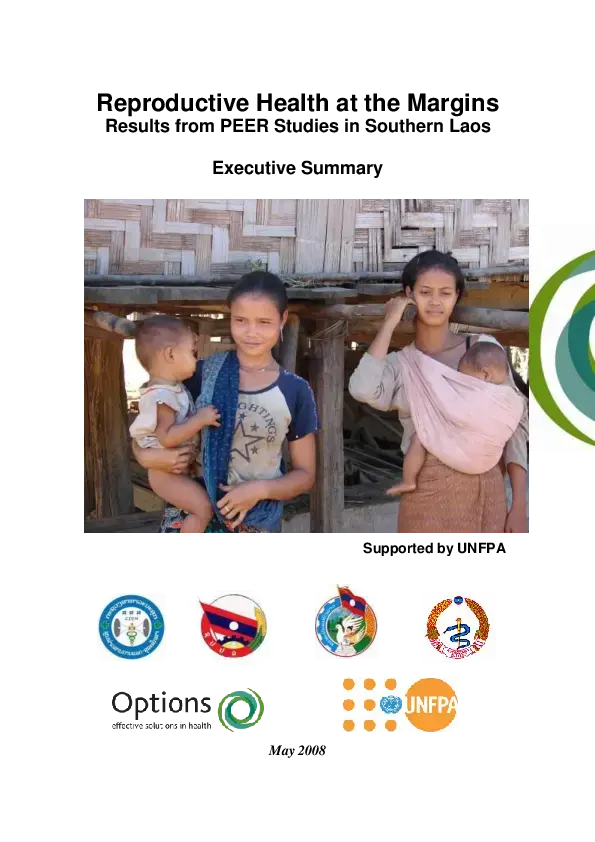The report of the Participatory Ethnographic Evaluation and Research (PEER) was conducted in collaboration with the Centre for Information and Education for Health (CIEH), Ministry of Health, provincial health department of Saravan, Sekong and Attapeu, Lao Women’s Union and Lao Youth Union. This study was supported by United Nations Population Fund (UNFPA), Lao PDR, and Option Consultancy Services, UK provided technical assistance. The PEER study took place from November 2007 – January 2008 and was undertaken in Saravan, Sekong and Attapeu to gain a better understanding of the social context of ethnic and rural women’s perceptions of marriage, family relations, gender norm and health-related behaviour, their livelihood strategies, and information sharing channels. PEER is qualitative method that produces actionable results in around 10 weeks. In PEER, members of the community are full participants in setting research agenda, conducting discussions, and analyzing information. The method does not rely on written tools, hence can be used with any community whether literate or non-literate.
What we do
Reproductive Health at the Margins - Executive Summary (2008)

Publications
Reproductive Health at the Margins - Executive Summary (2008)
Publication date
01 May 2008

